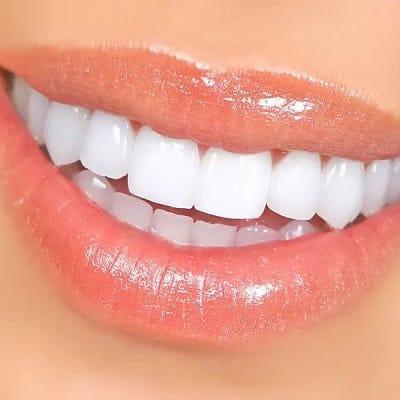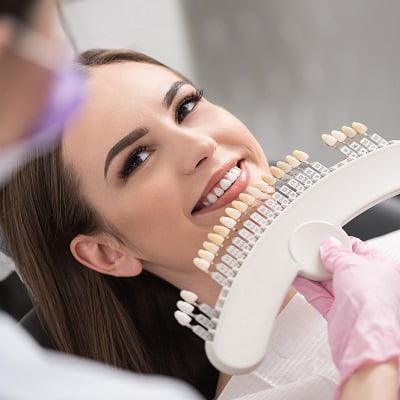Restorative dentists use popular and adaptable dental crowns to restore injured teeth’ fitness, features and looks. Although dental crowns are commonplace, a few people do not know how they work or what to expect after a surgical operation. Therefore, we’ll explain 7 Interesting Questions and Answers About Dental Crowns below.
7 Interesting Questions and Answers About Dental Crowns:
1. What Is a Dental Crown?
Dental crowns can cover completely decaying or broken teeth. Each of the four material alternatives—ceramic, porcelain, steel, or resin—has its own advantages.
Dental crowns can repair enamel length, form, strength, and aesthetics. They are usually used on teeth that are vulnerable to decay, fracture, or massive fillings.
Crowns are constructed of:
- For front teeth, porcelain or ceramic is the most realistic.
- Metal’s resilience makes it ideal for chewing-weary molars.
- PFM, or porcelain-fused-to-metal, combines the best of porcelain and metal.
- Resin is cheaper but less durable than other materials.
2. When will you Need a Dental Crown?
Dental crowns restore and protect teeth. When a filling fails to address significant dental decay, the tooth is considered deteriorating. Dentists also use them during a fracture to protect a damaged tooth. Further, after a root canal, a tooth is usually crowned for stability. Deep cavities result from huge fillings compromising tooth integrity. Therefore, dentists cover them with crowns. Crowns can secure dental bridges, which replace missing teeth.
3. What is the Procedure for Dental Crown Insertion?
For this treatment, you need to consult with dentist.
- First Consultation: The dentist will take X-rays and examine the tooth during preparation. Then, they ground the tooth to fit the crown. Fillings can fortify teeth after severe damage or decay. An impression of the tooth and surrounding teeth will be required for a precise crown-tooth fit. They use a temporary crown to preserve tooth structure until the permanent crown is ready.
- Next Visit: After removing the temporary crown, check the permanent crown’s color and fit. After using an adhesive, they securely attach a crown to the tooth.
4. How Long Does a Dental Crown Last?
Dental crowns can last 10–15 years or longer if properly maintained. Material durability determines crown longevity. Metal, porcelain-fused metal, ceramic, and resin crowns last longest. Consistent brushing and flossing extend crown life.
Avoid grinding your teeth, ingesting ice, and biting your nails to protect your crown. Regular dental visits allow for professional cleanings and early crown fault identification.
5: What are the Pros and Cons of Dental Crowns?
Dental crowns have many benefits, but patients should know the drawbacks.
Benefits of Dental Crowns:
- Restoration: Crowns repair fractured teeth by restoring size, shape, and function.
- Safety: They protect fragile teeth.
- Cosmetic Improvement: Crowns improve tooth appearance.
- Durability: A good crown can last for years with proper care.
Drawbacks of Dental Crown:
- Cost: Crowns, especially metal or porcelain ones, are expensive.
- Tooth Sensitivity: Some people report increased tooth-biting sensitivity after a crown.
- Preparation: The operation removes an irreversible native tooth fragment.
- Injury Risk: Crowns chip or shatter, requiring repair or replacement.
6. Can Dental Crowns Cause Allergies?
Although uncommon, some people can also react unfavorably to dental crown substances. Crowns of metals and nickel may also motivate allergies in a few patients. Allergic reactions cause redness, swelling, and pain.
Patients with steel allergies might also explore all-ceramic or all-porcelain crowns with their dentist. When consulting your dentist, include any hypersensitive reactions to choose the pleasant crown cloth.
7. How Can I Maintain My Dental Crown?
If you want your dental crown to last longer, you must take proper care of it.
- Brush two times an afternoon and floss daily to save the crown from decaying.
- Avoid biting on sharp objects to protect your crown.
- Schedule routine dental checkups and cleanings to keep the crown and surrounding teeth healthful.
- See your dentist immediately if your crown is loose or hurting.
Final Thoughts:
Hopefully, 7 Interesting Questions and Answers About Dental Crowns will help you apprehend them better. Dental crowns correctly restore fractured teeth and enhance oral hygiene. They are also prolonged-lasting, protective, and appealing. Before choosing dental crowns, learn about the way, care, and risks. Regular dental assessments and advanced oral hygiene will assist your dental crowns in remaining longer.
Book your appointment with certified and professional dentists at Enfield Royal PK for all your dental issues, such as crowns, implants, bridges, and more. We are continuously available to help you attain remaining fitness with modern-day treatment options.






Leave a Reply